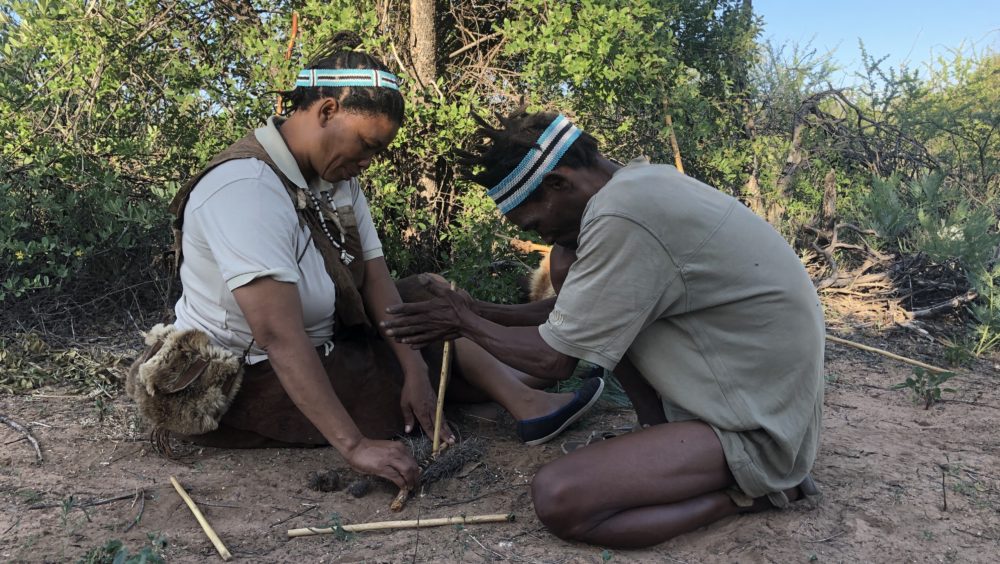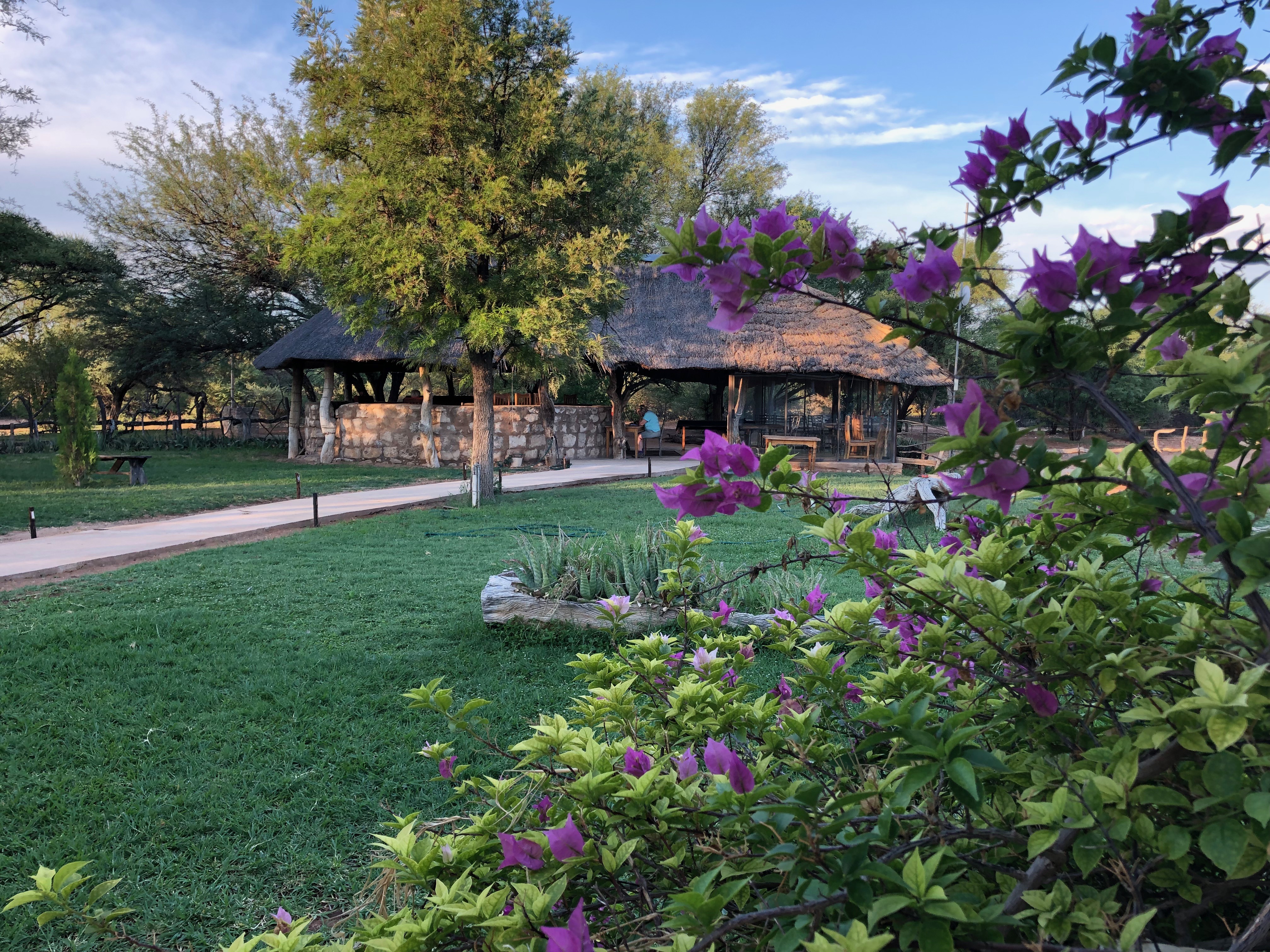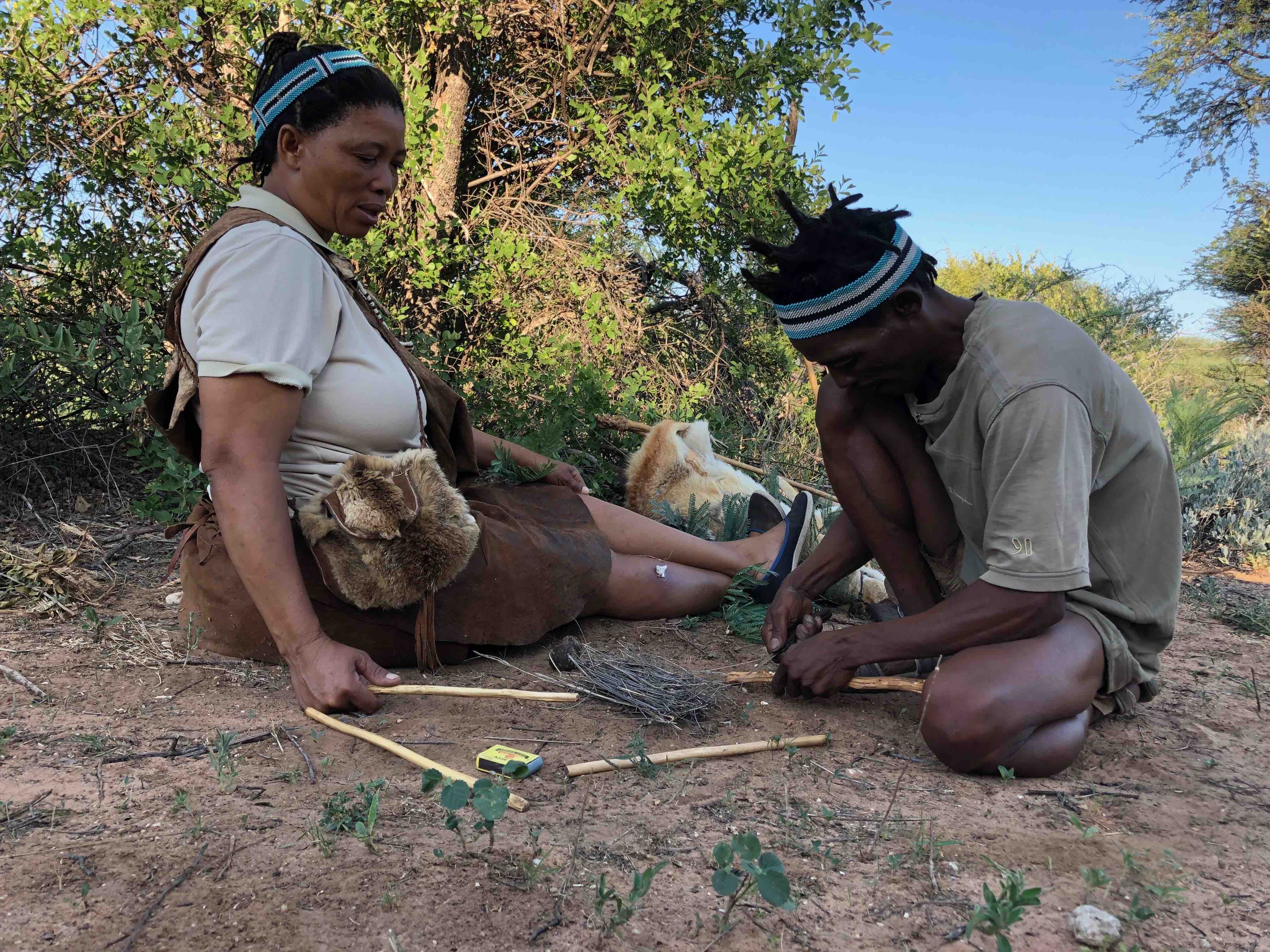HOW YOU CAN CELEBRATE THE WAY OF THE SAN
Across Southern Africa, there are tourism experiences that promise to educate and inspire visitors about the Indigenous San – the original inhabitants of Southern Africa, and truly the original inhabitants of Planet Earth. A fascinating culture, the San are the earliest hunter-gatherers, having once lived across large areas of South Africa, Namibia, Angola, Botswana, and beyond.

As is true with most Indigenous people, their way of life, their knowledge, languages and culture have all been threatened first by colonialism, and nowadays by the legacy that colonialism has left behind – a lack of economic empowerment and opportunity, which leaves the San isolated.
Having lived in South Africa, and returning regularly in my capacity as Program Manager for Planeterra, I was well acquainted with tourism experiences – from lodges to museums – that attempted to celebrate the San.
But few have the power of Dqae Qare San Lodge. Owned freehold by the Indigenous community of D’Kar through the Kuru Development Trust, this wildlife reserve, campsite and lodge is a special and unique place. It provides full-time employment for 12 members of the D’Kar community and part-time work for over 40 more. With many in the community living on about 30 cents a day, these jobs are truly changing lives. One Dqae Qare employee is able to support a family of ten back in D’Kar.
Visiting Dqae Qare
The authenticity and power of the lodge hits visitors almost immediately. As I arrived on my first visit in February of 2018, I stepped out of my truck to find San community members bustling about the property. An employee drives past in a work vehicle filled with other employees on their way to a maintenance job near the campsite, a young San woman is setting the table under a thatched roof for dinner, and another greets me and checks me in at the lodge’s reception. I book the activities I want to partake in with her, and she happily leads me to my room. There’s a sense of purpose and passion behind every employee, and the feeling is palpable.
Later that day, I’m greeted by Dinah and Xgaiga, who take me out on a bushwalk to show me how the San have hunted, gathered food, and used the sometimes harsh Kalahari environment to their benefit. The San employees at Dqae Qare can identify more than 80 plants and their medicinal uses – it seems like every five steps we take, Xgaiga halts to point out a tree or a bush that has a practical use – this one protects you from snakes as you sleep, the bark of this tree can be boiled in water to cure colds and its leaves can be eaten to relieve a stomach ache.

In the evening, there is a storytelling and dance. Community members from nearby flood to the big bonfire in front of the lodge, and Xgaiga begins a story, told entirely in Naro. Everyone listens intently, the travellers around me lean in when Dinah starts her translation, in anticipation but also to warm ourselves by the fire. The story is about how the dog became man’s friend, while the jackal remains wild. Dancing ensues, and community members and travellers alike join in a circle around the flames.
It dawns on me how profound it is to experience the San practicing their culture, on land that they own outright themselves. Indigenous people around the world struggle to regain lands taken from them and to practice traditions that were even made illegal. It’s so important that places such as the Dqae Qare San Lodge are preserved, and helping it grow is a task Planeterra has been dedicated to since this first visit.
The prosperity of the lodge has a direct correlation with the development of the D’Kar community and the employment of its people. The more Planeterra can invest in the infrastructure of the lodge, the more profit Dqae Qare can invest straight into the community projects they’re dedicated to providing – like support for the area’s schools, churches, and even a clean water project taken on by the Kuru Development Trust. This GivingTuesday, we’re asking for support to help with upgrades to the lodge so Dqae Qare can continue to grow, employ more community members from D’Kar, and so many more travellers can enjoy learning and celebrating the way of the San.



